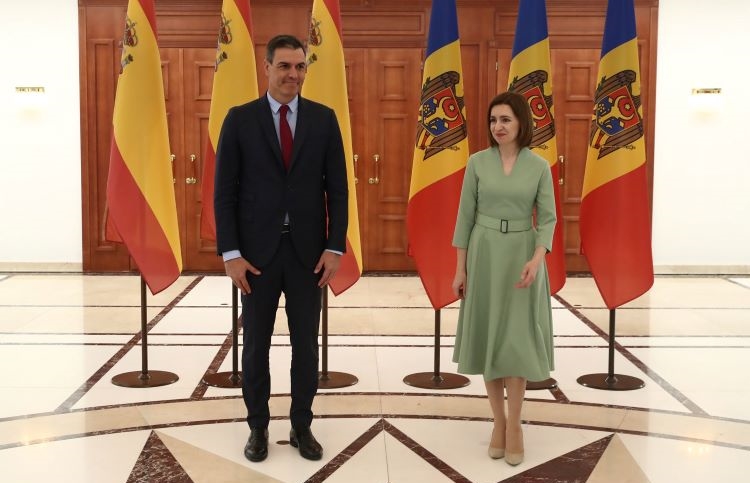The Diplomat
The Socialist Parliamentary Group in the Congress has presented a Non-Law Proposition urging the Government of Pedro Sánchez to support Moldova “in the situation of social and political emergency it is suffering as a result of the collateral effects of Russia’s aggression against Ukraine”.
The motion, presented last November 23 for debate in the Foreign Affairs Committee, recalls that Moldova is “at a real historic crossroads” after its acceptance as a candidate country for EU membership and in the midst of “an extremely difficult context” as a result of the war in Ukraine, which has resulted in the massive arrival of refugees. “The Russian attack on the Ukrainian energy infrastructure is going to provoke new waves of vulnerable refugees as the adverse weather becomes more severe in winter and Ukrainian families are unable to heat their homes,” it continues.
In addition, “the social situation caused by refugee flows is compounded by Russian interference in domestic politics,” which “contributes to fueling considerable social polarization that threatens the social and political stability of the country and the pro-European orientation of its policies,” and which has “several dimensions,” such as the Kremlin’s support for the separatist government of Transnistria – with the consequent deployment of a military contingent for three decades, Russian support for the opposition forces to the pro-European government, the “intense strategy of hybrid warfare” carried out by Moscow to “destabilize the country and the determination to integrate into the EU” and the “great dependence” that Moldova has on energy resources coming from Russia, such as gas and electricity (in this case, from Transnistria).
The motion recalls the “unequivocal support” of the EU to the Moldovan Government, with “a new package of 250 million euros to combat the consequences of the energy crisis in the country”, and the solidarity shown “repeatedly” also by Spain, which has resulted in the opening, in June, of a diplomatic antenna attached to the Romanian Embassy and in the “recurrent visits and high-level communications”, such as those made by the President of the Government, Pedro Sánchez, in June, or by the Minister of Foreign Affairs, Jose Manuel Albares, in March.
“An important part of the aid approved by the government to deal with the consequences of the war in countries bordering Ukraine is destined for this country,” recalls the PSOE. “The Government has also offered its support to Moldova to implement the reforms required by Europe to favor the process of integration into the EU”, adds.
For all these reasons, the Non-Law Proposition urges the Government to “reaffirm support for Moldovan claims in relation to the sovereignty and territorial integrity of Moldova within its internationally recognized borders”, to “work at the EU level” to “continue supporting the country throughout this winter, in which social and political tensions, with great probability, are going to continue to increase”; to continue “to support the activity of humanitarian and development cooperation organizations that carry out their activities in Moldova”, and to strengthen bilateral ties with Moldova, “progressively increasing the capacities of the diplomatic antenna recently established in Chisinau”.
The motion also asks the Government to continue offering technical assistance to Moldova to implement the necessary reforms that will allow it to advance in the process of European integration, with special attention to “the efforts of the Government” of Maia Sandu to “promote a reformist agenda in key areas such as judicial reform, the fight against corruption and organized crime, and the strengthening of the administrative capacities of the State”. Finally, the motion urges the Government to provide technical assistance, in coordination with the European External Action Service (EEAS) and EU Member States, “to combat possible cyber-attacks and disinformation campaigns promoted from the Russian Federation.”






